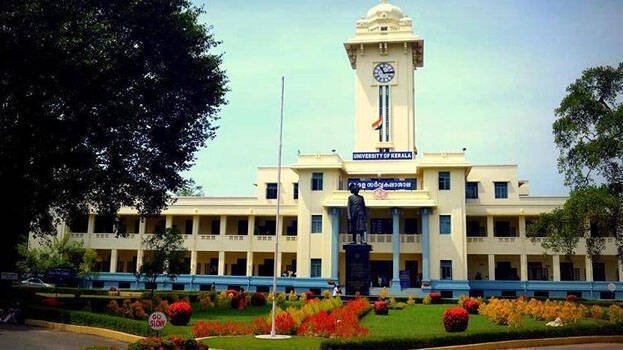

The UGC (University Grants Commission) has released a revised draft of regulations governing the appointment and promotion of Vice Chancellors, teachers, and academic staff in universities across the country. According to these new rules, the Chancellor, who is also the Governor, will appoint the Chairperson of the Search Committee for the selection of Vice Chancellors. The second member of the committee will be nominated by the UGC Chairperson, while the third member will be suggested by Syndicate, Senate, Executive Council, or the Board of Management Committees. In Kerala, disagreements between former Governor Arif Mohammed Khan and the state government over the appointment of Vice Chancellors had led to several university VC positions remaining vacant. The new regulations aim to eliminate ambiguities in the existing procedures for VC appointments. Any VC appointments made contrary to these rules will be considered invalid.
The Search Committee can propose five names for the Chancellor’s consideration for the position of Vice-Chancellor. Appointments will be for a term of five years or until the appointee reaches the age of 70, whichever comes first. These criteria will also apply to reappointments. Institutions that violate these regulations will be excluded from UGC schemes. Temporary faculty appointments on a contractual basis cannot exceed six months, and such appointees must be given the same salary and benefits as permanent faculty. Once finalized, the UGC regulations will allow individuals with advanced educational qualifications, including a PhD, who are civil service officers, industry leaders, or senior officials in public sector organizations, to apply for the position of Vice-Chancellor.
In Kerala, notifications for filling the 13 vacant VC positions in February will follow the new regulations. The UGC is currently seeking feedback from the public and academic experts on the draft rules. If there are objections, the state government’s Higher Education Department must also communicate its concerns. With the implementation of these new guidelines, the state government’s authority over VC appointments will be entirely curtailed. The Supreme Court, in its ruling on the Kannur University case, had already declared that there should be no external interference in VC appointments and that the Chancellor holds the authority for such appointments. This has resulted in the state losing its influence over the process. The new UGC regulations will further ensure that state governments play no role in appointing Vice Chancellors.
Kerala's government had made efforts to remove the Governor from the position of university Chancellor and to establish greater authority for the government in VC appointments through legislation. However, its path in this regard was blocked after the President rejected the bills. The excessive influence of politics in academic institutions has only led to a decline in the standards of universities. Therefore, avoiding politically motivated appointments in key positions is essential for the betterment of universities and the future of students.